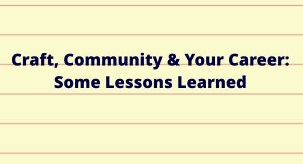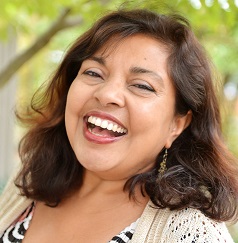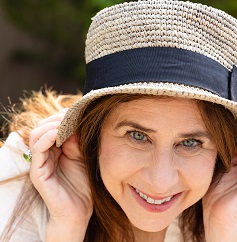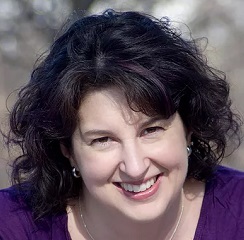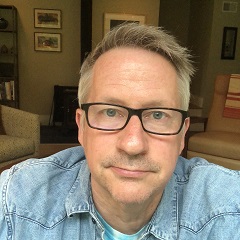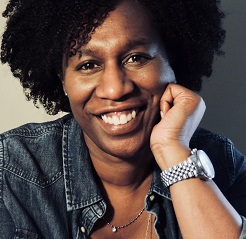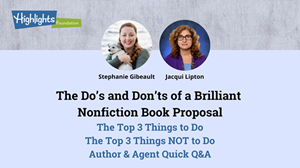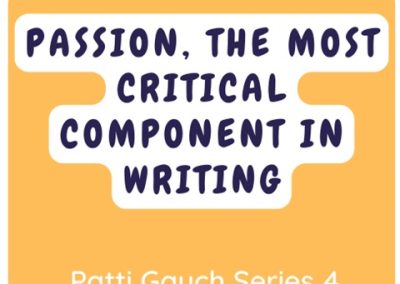Looking ahead to our upcoming Craft, Community & Your Career: A Support Group for Experienced Storytellers course, we’ve gathered some thoughts from each of the faculty about lessons learned, “symptoms” of mid-careering, and what it means to be an established and/or midlist author.
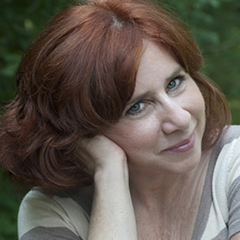 SARAH ARONSON on how things have (and haven’t) changed
SARAH ARONSON on how things have (and haven’t) changed
When I began writing, I was sure that studying the craft and reading widely (like a writer and a reader) was all I needed to pursue a career in writing. I didn’t worry about book tours. Or swag. Or even school visits. There wasn’t much social media to care about. I kept a day job–I didn’t want to ask my art to pay my bills. The best thing that happened was I found a supportive creative community–other writers hard at work with the same ambitious goals: to share a story. To find an editor. The rejections, bumps, and setbacks did not seem so bad. I felt like I was moving forward.
Today, when I think about what it means to have a career in writing, I haven’t changed all that much.
Yes, I spend more time connecting with readers. I devote energy and resources to introduce my books–and what I have to say–to others. I feel grateful for the conversations I have been invited to. As for my writing community–it is more important than ever. Even better, it is changing and growing–diversity makes us all stronger. I love helping others find their stories. I love learning from others.
But my career goals? I’m not sure they’re different. I write the story I find. I don’t care about brand. (My mom says I always was stubborn.)
When things are going well, it is still me at my desk (or on the porch, or the couch), imagining and re-imagining some character or story.
Perhaps the best thing I have learned is to forget expectations, and embrace curiosity, play and the joy of writing. I can’t control anything else. There are a lot of ways to have a career in writing. Basically, I am still that writer who sits down every day in search of a new idea.
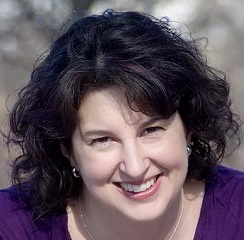 ERIN DIONNE on self-examination and community
ERIN DIONNE on self-examination and community
After ten years of being in the publishing world, I find myself in a period of self-examination. What does my career look like from here? What are the next set of goals and milestones that I’m headed for, now that I really know how this industry works? What do I want to share with the world right now? What can I offer to the conversation via my books? These are the questions with which I’m wrestling.
What I do know is that I love helping other authors develop their craft and cheering them on in their journey of publication. The community I’ve cultivated has helped me in immeasurable ways: from prepping to ask sticky questions of my agent or editor to navigating all the feels around editorial letters, having other writers to reach out to and lean on has been the best gift of my career. I’m excited to navigate new questions and discover answers with this group.
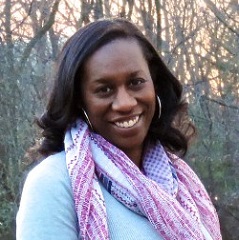 LEAH HENDERSON on the things we can (and can’t) control
LEAH HENDERSON on the things we can (and can’t) control
When I was pre-published, I had very few expectations, whether that was good or bad on my part, who knows; however, one thing that did pinch me early on and make me pay attention was the realization that so much in this business would be out of my control. I’ve always believed if you work hard, you’ll see the results you were working towards (or at least that’s how most things worked when I was twelve and even at eighteen), but in publishing, the rules are definitely a bit wobbly on that front. Back in 2017, during my debut year, this awareness bopped me in the face! Things aren’t that simple here. Instead, along this twisting journey of disappointments, confusions, inaction, small victories, grand successes, and uncertainties, I came to understand one simple truth–in order to survive (yes, survive), maintain, and continue to flourish and grow, especially regarding this business of books, I need to focus on the things I can control.
My work.
Yes, I still hope someone (many someones) will be interested in reading or acquiring my words, but that isn’t my immediate focus. My immediate and almost constant focus is in getting the words down. On me putting my behind in a chair. On writing. On revising. On reworking. And on re-imagining the words I find. Then after I’ve done all I can, I need to be okay with letting them go to see how they’ll fare. Don’t get me wrong, none of this is easy, but it is up to me, and only me to get this portion done.
Then, trust (in my agent), hope (that my stories will land on the right desk, on the right day), luck (that they’ll be read at the perfect or near-perfect time), a little more luck (that someone is looking for a project just like mine), belief (that I did all I could with all the tools I had right then), and faith (that my words will find the home they’re meant to find) are also companions on this journey of mine.
And each time I sit down to start a new project, this is what I think about–the things I can control–while surrounding myself with a community of people I can champion, support, and lean on while they do the same for and with me.
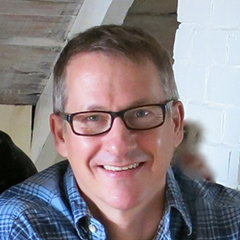 CHRIS TEBBETTS on the best advice I ever got
CHRIS TEBBETTS on the best advice I ever got
I once read something in an interview with the actor Alan Alda. He said that one of the early revelations in his career came when he decided to stop focusing so much on what he should be doing and start focusing more on what he was doing. The idea is so simple–almost simplistic–and yet, also (for me), a profound bit of advice.
Thinking about our Craft, Community & Your Career: A Support Group for Experienced Storytellers course at Highlights, I also like the way this principle applies across all three of those categories.
CRAFT: I need to constantly remind myself that finishing a manuscript is about making specific choices and running with them, not about trying to accommodate every idea I might like to incorporate, or every bit of brilliance I might have imagined for this story at the outset. Talking about that initial vision of the perfect story, Ann Patchett has said, “I can’t write the book I want to write, but I can and will write the book I’m capable of writing.” As tempting as those visions of perfection might be, a finished book is always going to get me farther along than an unrealized ideal.
COMMUNITY: Comparing myself to other writers, in any regard, is both inevitable and, for the most part, a waste of time. This one is a bit insidious in an industry as competitive as ours, and I don’t begrudge myself the occasional flash of envy, much less the chance to learn from others’ success. But for the most part, I get a lot more mileage out of taking stock of my own accomplishments, strengths, and to-do list, than I do by worrying about someone else’s. My advice on this one is not to avoid comparison altogether (because who could?), but rather, to recognize it as the unhelpful pursuit that it is when we find ourselves doing it.
CAREER: It’s way too easy to spend a lot of time thinking (okay, obsessing) about the places my career hasn’t taken me, or the things my publisher isn’t doing for me, or the events I’m not invited to… but without fail, anytime I’m feeling under-accomplished in this way, the best antidote is to turn my attention to whatever might be next on my professional calendar. Or, if that’s looking distressingly empty, I work at making something happen—organizing a group reading in my hometown; writing my own press release for the upcoming book; scouting around for an event I might attend; or, of course, working on that next story in progress. None of this is going to rid me of my anxieties 100%, but if I can make a habit of focusing on concrete action over abstract rumination, I’ll always come out ahead.
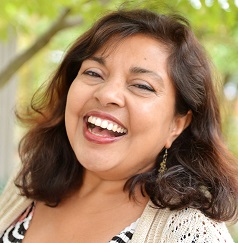 MITALI PERKINS on persistence
MITALI PERKINS on persistence
This is an excerpt from Mitali’s longer article, Wanted: A Community to Share a World-Changing Vocation, which you can read here.
The years of rejection [before publishing] were tough…and this career isn’t for the faint-hearted. Only a few books each year become bestsellers or win awards and it can be discouraging when ours are overlooked or don’t sell. Time after time, I go back to that original vocational mission–to widen the hearts and minds of children and deepen their compassion–and forget myself in the flow and joy of craft.
To stay steadfast in this career, however, we need community. And that’s why our upcoming course at the Highlights Foundation is for people who believe we can change the world by creating stories for young people. The planet needs our stories, and we can spur each other on to create better ones, even when the going is challenging. I hope you join us; we can encourage each other.



